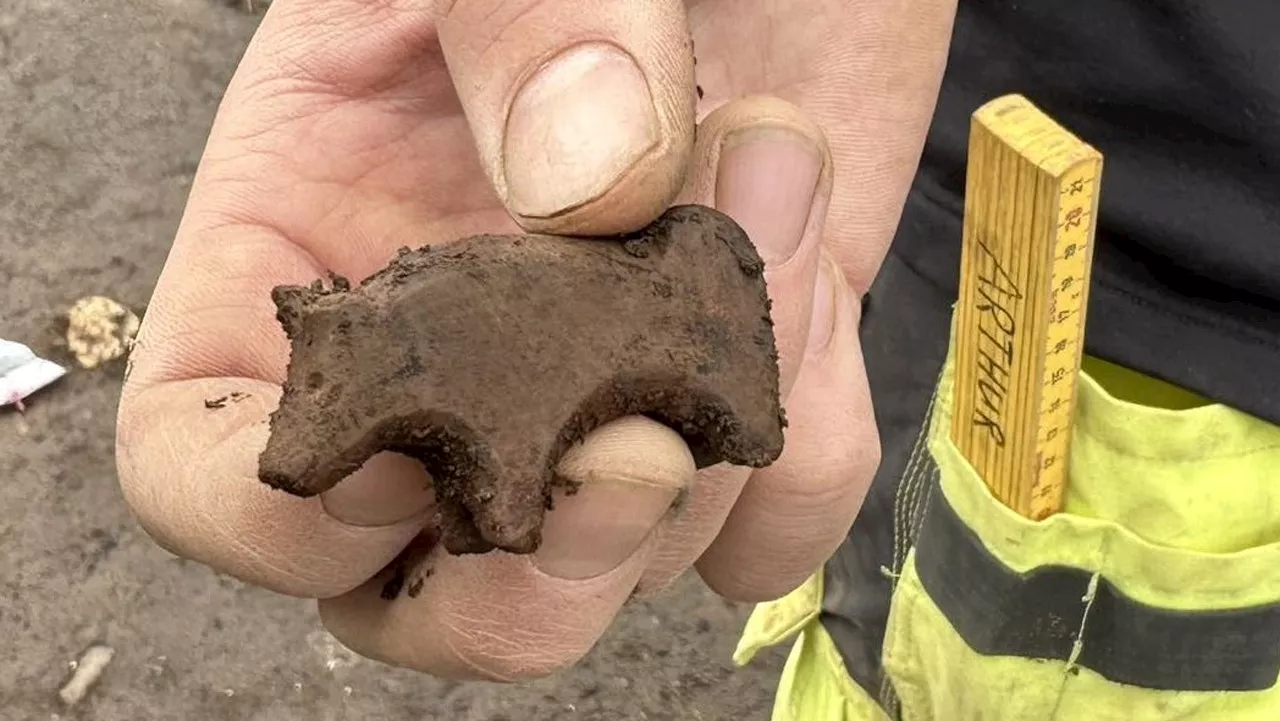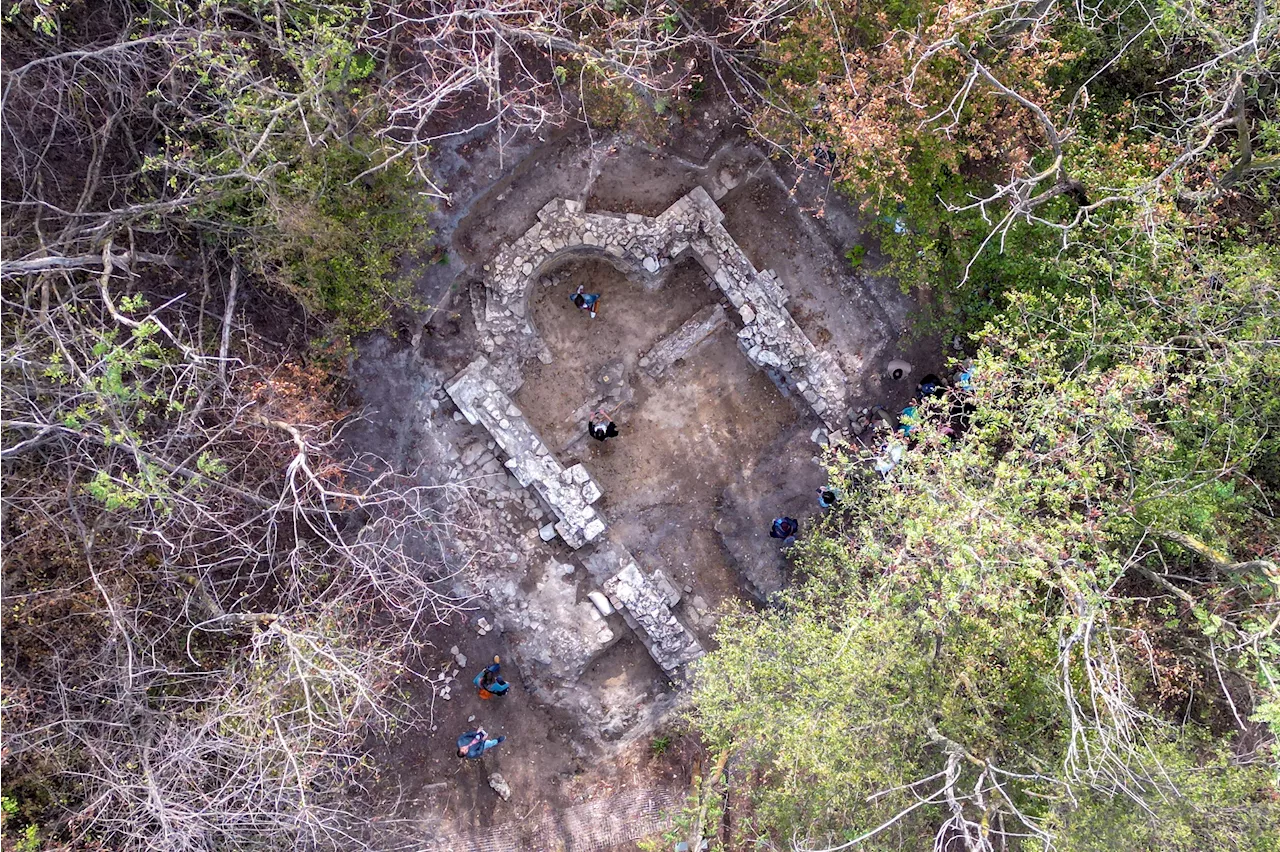Historical sources indicate that an emperor may have participated personally in the church's construction.
Archaeologists have unearthed the well-preserved remains of a lost church that is thought to have once formed part of a medieval monastery.The church and monastery, located in the municipality of Veliko Tarnovo in Bulgaria, are believed to have been constructed in the 14th century during the reign of Czar Ivan Alexander, historical sources indicate.The czar ruled as emperor of the Second Bulgarian Empire from 1331 to 1371.
Researchers came to this conclusion after connecting the results of the archaeological research with data from a medieval document detailing the life of St. Theodosius of Tarnovo, a high-ranking Bulgarian cleric and hermit who lived during the 14th century.The monastery is mentioned in written sources from the 14th century, but its exact location had not yet been established.
United States Latest News, United States Headlines
Similar News:You can also read news stories similar to this one that we have collected from other news sources.
 Archaeologists unearth ancient toy in Iceland, disagree on animal figurine’s classificationIn Iceland, a small toy dating to the Viking Age was uncovered by archaeologists. It is one of over 100 similar gaming pieces that have been found during excavation.
Archaeologists unearth ancient toy in Iceland, disagree on animal figurine’s classificationIn Iceland, a small toy dating to the Viking Age was uncovered by archaeologists. It is one of over 100 similar gaming pieces that have been found during excavation.
Read more »
 Why Sitka lost almost everything else when it lost the internetAt 11 a.m. on Aug. 29, Sitkans found themselves without internet, cell service or texting and unable to use credit cards. Even some landlines – depending on the type of phone – didn’t work.
Why Sitka lost almost everything else when it lost the internetAt 11 a.m. on Aug. 29, Sitkans found themselves without internet, cell service or texting and unable to use credit cards. Even some landlines – depending on the type of phone – didn’t work.
Read more »
 Why Sitka lost almost everything else when it lost the internet'A lot of times people talk about fiber as being future proof, but I think maybe we’re learning that it’s not Alaska proof,' said one expert.
Why Sitka lost almost everything else when it lost the internet'A lot of times people talk about fiber as being future proof, but I think maybe we’re learning that it’s not Alaska proof,' said one expert.
Read more »
 Scientists unearth key clues to cuisine of resident killer whale populationsA team led by researchers at the University of Washington and the National Oceanic and Atmospheric Administration has uncovered key information about what resident killer whale populations are eating. Researchers had long known that resident killer whales—also known as resident orcas—prefer to hunt fish, particularly salmon.
Scientists unearth key clues to cuisine of resident killer whale populationsA team led by researchers at the University of Washington and the National Oceanic and Atmospheric Administration has uncovered key information about what resident killer whale populations are eating. Researchers had long known that resident killer whales—also known as resident orcas—prefer to hunt fish, particularly salmon.
Read more »
 Archaeologists discover 16,000-year-old artifacts in prehistoric burials during excavation in MalaysiaExcavation of caves in Malaysia's Nenggiri Valley led archaeologists to more than 70,000 artifacts, including human skeletal remains, believed to be up to 16,000 years old.
Archaeologists discover 16,000-year-old artifacts in prehistoric burials during excavation in MalaysiaExcavation of caves in Malaysia's Nenggiri Valley led archaeologists to more than 70,000 artifacts, including human skeletal remains, believed to be up to 16,000 years old.
Read more »
 Archaeologists discover an ancient Neanderthal lineage that remained isolated for over 50,000 yearsA fossilized Neanderthal discovered in a cave system in the Rhône Valley, France, represents an ancient and previously undescribed lineage that diverged from other currently known Neanderthals around 100,000 years ago and remained genetically isolated for more than 50,000 years.
Archaeologists discover an ancient Neanderthal lineage that remained isolated for over 50,000 yearsA fossilized Neanderthal discovered in a cave system in the Rhône Valley, France, represents an ancient and previously undescribed lineage that diverged from other currently known Neanderthals around 100,000 years ago and remained genetically isolated for more than 50,000 years.
Read more »
